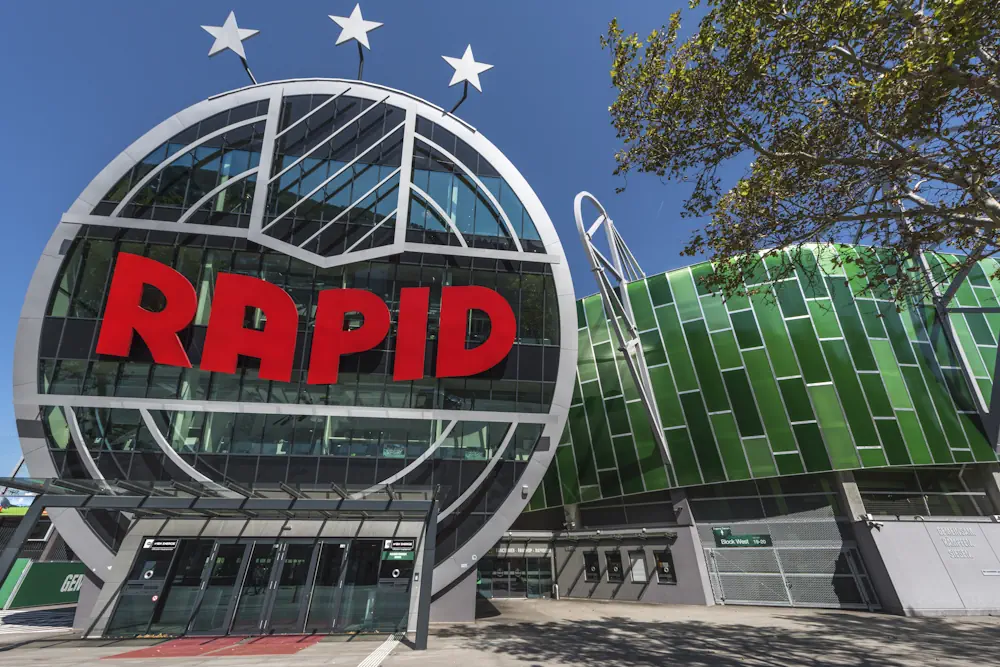When Austrian giants Rapid Vienna won the German league
The story that follows these words could easily be the script for a movie. However, everything told here is real, with some moments that could be worthy of any fiction film. In the first half of the last century, with the two World Wars in the background, football had many changes and consequences due to the political situations of the moment.
Anschluss
It's never smart mixing political topics with football, since they tend to be two topics with very different connotations from each other and that usually generate strong reactions from people. However, in this case, the context of the situation at that time must be given and this involves the tyranny of Adolf Hitler. On March 12, 1938, the annexation of the Austrian state to what was the German kingdom took place. This is known as the Anschluss.At that time, Austria was a powerful football nation, in fact, by 1938, there was still part of the Wunderteam (legendary Austrian team of the 1930s) and it was a national team considerably superior to the German one. The Austrians had already qualified for the 1938 FIFA World Cup before the Anschluss but were unable to participate in the competition, except for some players who joined the German team.
At the club level, there were also important consequences of the Anschluss since the persecution of Jews by the Nazis began and they represented an important group within the mass of players in the Austrian league. Many players fled the country and in the end this led to clubs disappearing or being banned. The Austrian teams that survived the situation were included in the German competitions, so any Austrian tournament, including the national league, disappeared.
On April 3, 1938, Austria played its last game as an independent nation (they would play that way again until after Hitler fell) against Germany. Austria was clearly superior to its rival but they missed the goal opportunities in a way that seemed intentional, almost like a mockery towards the Germans. In the last minutes, Karl Sesta and Matthias Sindelar would score the two goals of the Austrian victory.
According to the records, Sindelar celebrated his goal in front of the Nazi leaders in an exaggerated way as a way to annoy those who had taken over his country. Sindelar was one of Austria's stars and true to his principles, he refused to join the Germany national team after the Anschluss, as did some of his compatriots.
Tschammerpokal
On January 8, 1939, with the few remaining Austrian clubs participating in the German national competitions, the final of the Tschammerpokal was played, which would become the national cup of the time. FSV Frankfurt faced Rapid Vienna at the Olimpiastadion in Berlin. It was surprising and unexpected that the Viennese club was in that instance since Hitler used football as a means of propaganda rather than as entertainment or something for which he had any kind of hobby.For the tyrant, the Germans had to always defeat the Austrians to demonstrate the superiority of their race. However, what happens in the final was not what Hitler expected. After the Frankfurt team took the lead in the 17th minute, Rapid would come back to win 3-1, scoring their 3 goals after the 80th minute, almost as a sign of their football superiority. In the following editions of the tournament, Rapid beat most of their rivals until the semifinals, where a German club eliminated them.
Gauliga
The Gauliga was Germany's league championship at the time, whose format consisted of a group stage, with each group separated by region of the country, and then moving on to a semi-final round and a single-match final. In the 1939 edition, another Austrian team reached the final, played in June of that year, Admira Vienna, which faced Schalke 04, although on this occasion, the German team won 9-0, a better result according to what Hitler preferred.Since that time, there have always been rumors that Schalke was the Nazi team, perhaps because it was one of the most successful clubs at that time, although there is no evidence to support that theory. A year later, the final would be purely German and Schalke would also win but only by 1-0. The surprise would come in 1941, when another Austrian team reached the final, this time, Rapid Vienna, the same one that had already upset the Nazis in the Tschammerpokal.
The other finalist was, once again, Schalke 04, which seemed perfect for them to pass over the Austrian team and once again show their superiority as a race. In fact, the game started very well for Nazi interests since in just 8 minutes of the game they were already winning 2-0. In the 58th minute, Schalke scored their third goal, making it seem like the final would be another German rout.
However, Georg Schors scored the injury time goal for Rapid in the 60th minute and between the 62nd and 71st, Franz Binder scored a hat-trick to turn the final around. Once again, Rapid Vienna came back from a final against a German club and won the league in a country other than Austria. The final was played on June 22, 1941, the same day that Operation Barbarossa began, that is, the German invasion of the Soviet Union, which for many was the beginning of the Nazi fall. It is said that as a form of revenge, the Germans recruited several of Rapid's players to go to the Eastern Front.
